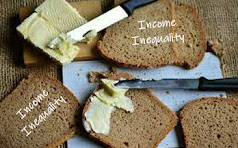Many Democrats would enjoy knowing what’s up with West Virginia Senator Joe Manchin and Arizona Senator Kyrsten Sinema. They’re either principled crusaders for fiscally
responsible government and bipartisanship or they’re bought and paid for captives of corporate lobbyists. An answer to this question depends on one’s political approach and inclinations about how much credence a politician’s own explanations for his or her behavior should get. Progressives and people who don’t trust politicians will likely look at their political contributions list and decide it’s the latter. People who want less governmental involvement in American life and/or who take people, including politicians, at their word will likely see it differently. In any event, Manchin and Sinema are the talk of Washington these days, so they merit exploration.Outsized Influence
Had Democrats done better in last fall’s U.S. Senate elections, we might not now put so much focus on Manchin and Sinema. But, they didn’t and ended up with only 50 seats. Thanks to Vice President Harris, Democrats “control” the senate, meaning the two who have voiced the most serious objections to President Joe Biden’s domestic agenda have more influence than most these days. Both have used that influence in forcing a vote on the bipartisan infrastructure package when party leadership and House progressives wanted to wait on that bill until Biden’s “human
infrastructure” legislation – his Build Back Better program – was ready for a vote in both houses. They’ve also been the driving force behind reducing the size of Biden’s plan from $3.5 trillion to about half that.Sinema also made sure most of the tax increases Biden wanted got stripped from the bill. She said she wouldn’t “support any legislation that increases burdens on Arizonans or American businesses and reduces our ability to compete either domestically or globally.” Vague though that statement may have been, when one vote means everything, if that’s how one senator
sees things, that view probably will rule the day. Sinema also goes to great lengths to extoll the virtues of bipartisanship. She argues bipartisan legislation leads to more enduring policies that won’t get wiped out in the next power shift in Washington.Manchin contends Biden’s bill would promote inflation, a claim the Congressional Budget Office disputes. He also claims the legislation
would damage the coal industry. He ignores the damage the coal industry does to the environment and how few coal jobs the legislation would actually put at risk. But that’s his story and he sticks to it zealously.The Dark Side
Both Manchin and Sinema spout elegant pronouncements that find their footing in either pragmatism or high-brow political philosophy. Progressive activists see something else behind the positions they’ve taken –cold hard
campaign cash. Both have become magnets for contributions from conservative, Republican-leaning donors who want to encourage their resistance to progressive Democratic legislation.Manchin, who isn’t up for
re-election until 2024, took in $3.3 million in the first nine months of 2021,
14 times more than he raised during the same time in 2020. Sinema, who also
isn’t up until 2024, raised $2.6 million in that time frame this year, two and
a half times more than she collected in that time period in 2020.
Manchin has especially been
the beneficiary of contributions from energy industry figures. They blanche at
Biden’s climate change agenda, especially his plans for reducing the use of
fossil fuels.
Pharmaceutical industry
executives, in particular, helped fill Sinema’s coffers. She’s gotten
significant sums from tech industry figures.
Both she and Manchin have declined comment on the spate of
contributions.
So, Which Is It?
Are Manchin and Sinema noble political leaders who will keep the country safe from
inflation? Are they the last line of defense against a partisan split that eats at democracy by promoting division, rendering us incapable of working with each other? Or, are they bought and paid for corporate puppets who’ll do anything in exchange for campaign contributions.We aren’t in their heads, of
course, but we wonder how anyone can dismiss the influence of the money. Sinema
had a progressive image when she served in the Arizona legislature. She won her
senate race in 2018 with considerable support from people of color and young
progressives. She gave few hints of the
kind of obstructionist approach to progressive legislation she’s shown with the
Biden program. We wonder if she just saw
an opportunity and took advantage of it. Many Republican donors giving her
money say they want a “go to” person in the Democratic party. She has certainly
given them that.
The question for Sinema, much
more than for Manchin, is what impact her approach will have on her political
base in Arizona. A lot of people who backed her in 2018 aren’t happy. Her
approval ratings among the kind of people who helped her win that election have
plummeted.
In the final analysis, what’s
driving Manchin and Sinema may not matter much. For now, both have decided that
doing what they’re doing best serves their political ends. We should expect
they will keep doing it.
















































